Resources
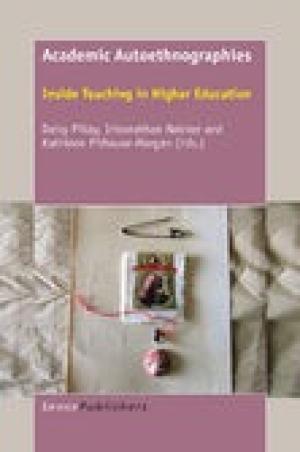
The editors of this book are based in a School of Education at a South African university where they teach and research in the academic specializations of Teacher Development Studies (Daisy and Kathleen) and Educational Leadership and Management (Inbanathan) (2). There are thirteen chapters that identify how each utilizes autoethnography within South African higher education. Each author discusses their personal and/or professional narrative of lived experiences as a doctoral student, researcher, or educator within South African higher education. Even though the book is written from a South African higher education viewpoint, the strength of the book is its usefulness to academics who are interested in learning how to be self-reflective, find their authentic voice, and use creative measures (photos, poems, storyboards, exhibitions, journals, metaphor drawings, and so forth) to share their experiences to a wider community within and outside of academia. The book invites readers to experience autoethnographic research as a challenging, complex, and potentially transformative methodology for facilitating sociocultural understandings of academic selves and of teaching in higher education (14). Within the book, autoethnography is defined in multiple ways by different practitioners. However, one key definition is “autoethnography has potential to deepen and extend our understandings of lived educational experiences through the articulation and acknowledgment of how selves are sociocultural, political, and historical (14).” Each chapter’s author focuses on a lived educational experience for which they use autoethnography as their method of self-reflexive research. Liz Harrison (chapter 2) sought to write an authoethnography “that is ethnographic in its methodological orientation, cultural in its interpretive orientation, and autobiographical in its content orientation” (Chang 2008, 48). She focuses on how she came to give weight to her voice and the opportunities afforded her to speak for change within higher education. Lasse Reinikainen and Helene Zetterstrom Dahlqvist (chapter 5) focus on how as teachers and researchers there is a challenge to find ways to teach about issues connected to complex and abstract societal structures, especially if teachers want students to understand and make connections to their own individual experiences (70). They used the art of curating an exhibit as a form of self-reflexivity and writing about the ethical issues of the process. They explore the thought-provoking question – “Is there social change in you?” Their emphasis is on the vulnerability of teachers moving from private (personal) to public (shared) experiences with their students. The remainder of the book is equally valuable for educators implementing autoethnography using visual art (poems, exhibits, storyboards, photography, family history, and so forth). The book accomplishes much in the short space of thirteen well-structured chapters. It is an important resource for those seeking to use autoethnography to improve their teaching.
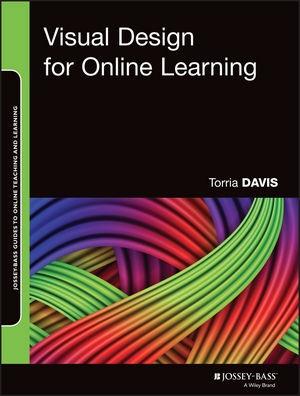
Anyone who has developed an online course knows how important the design of the course is. Poorly designed courses make the course navigation difficult, causing unnecessary frustration and limiting the ability of students to achieve learning outcomes. The author of this book understands these difficulties. Drawing upon her own negative experiences with initial online offerings, she provides readers with important lessons on designing effective online experiences for both teachers and students. Davis suggests, rightly, that the reader should use the text like a workbook, drawing from the ideas presented in the text as the reader creates her/his own course in the platform the reader uses. She encourages readers to draw upon the backward course design model: begin with learning objectives, discern appropriate ways to assess those objectives, and then generate online learning activities that will enable success in the course. Such alignment will promote student success. The author provides an acronym, L.I.T.E., for the design framework she encourages. Readers should be sure to create clickable links to external content (L), integrate well the multimedia included (I), use typography and white space to enhance the legibility of the course (T), and embed the content at the point of need (E). She identifies four types of content pages that should be part of the design: landing page, navigation page, instructional page, and assignment submission page. Of course, most learning platforms will provide these. The key, she contends, is to create them in a way that achieves the course objectives and is user-friendly for the student. The remainder of the chapters illustrate how readers can develop the various components of a good online course, including images and videos, integrating multimedia, facilitating instruction and interaction, and the all-important assessment. Davis provides helpful hints regarding the tools included in software such as PowerPoint, like using it to download and edit images or to incorporate online media. She also points to a number of free online tools one can use to develop a course, such as the presentation tool Brainshark, and the interaction tool VoiceThread. At the same time, she cautions users not to incorporate too many technologies into the course. The focus should be on learning the content of the course, not on overwhelming students with too many technologies. As with any text, there are some limitations. Parts of the book require knowledge of html language. Many faculty do not know html language because they use software to develop their courses that does this automatically. In addition, for a book that emphasizes visual design, many of the illustrations are difficult to read, leaving the reader to wonder how well the text follows its own advice on legibility. Yet over all, the text is a useful step-by-step guide for developing an online course or for improving the visual design of existing courses.
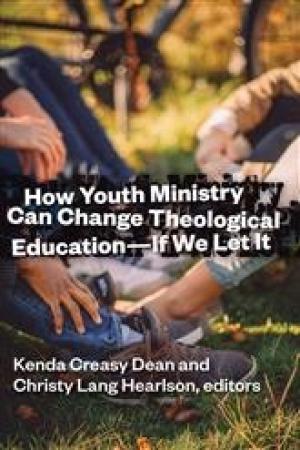
Acutely aware of the North American religious landscape, the editors introduce the volume by noting two ironies – a vast majority of young people subscribe to a superficial understanding of self, God, and the world, and those who are more complexly informed are often mistakenly considered by youth ministries to be “already won” (8). With this awareness, the editors bring together a diverse set of essays that intentionally make an effort to overcome this irony. By making critical references to High School Theology Programs, the different authors weigh in on the matter by treating high school students as full persons who desire and invite serious mentorship, challenge conventionally held notions, and are ready to hit the spiritual formation ball out of the park. Several authors highlight how young people are often liturgically formed by dominant social conventions that impact their behavior and their ability to articulate the meaning of self and world. If young people are thus culturally tutored, how can those in youth ministry enable a different way of theologically framing lived experiences? How can they creatively disrupt unhelpful naming systems, for example, that young people are enculturated into in such a way that naming the issue could become a means to rethink and rename ways of being in the world? What would this take and what would it cost? Each author presents arguments and perspectival interventions that are based on hard evidence and long-term work with high school students. Work with youth, in the end, affects youth and those who work with them. The book argues that such giving and receiving offers grounds for holy friendship and mutual companionship that can and will positively change self and world. Faculty members in theological schools are encouraged to actively seek out for themselves and others opportunities to teach age groups that they may not otherwise readily engage. No age is “too young.” While the difficulty of the task is not underestimated, the rewards, the authors argue, are many. Church workers are called to focus not so much on saving churches but rather on “saving lives” (275). Both may eventually be saved in the process. The subtitle “If We Let It” captures the philosophical framework of this book. Readers interested in learning how youth ministry can change theological education – if we let it – will learn a great deal from this work that serves as a well-researched handbook, an indictment of theological malnourishment, and a mirror that poses hard and important questions to those interested in more than a cosmetic makeover of theological education today.
Preparatory Documents Graduate Program Teaching Initiative Summative Conference Preparatory Documents Each program prepared two documents that were distributed electronically prior to the conference. Document 1: Teaching Preparation in your Doctoral Program Prepare a brief summary of the teaching preparation aspects of your doctoral program so other institutions can have a good understanding of how it is structured, who is involved, and the various stages the doctoral students go through. This should involve things such as its place in the student's program, how much teaching is involved, how the supervision is structured, whether there is a teaching colloquy or class, how the faculty are trained or oriented, etc. This document should be no longer than 2 pages. Document 2: Summary of Findings from Teaching Initiative Work Prepare a brief summary of your findings from the work of the Teaching Initiative. A refined version of no. 6 in the school's final report can be used for this. Again, this needs to give other institutions a good understanding of what was learned from the visiting alumni/ae as strengths and weaknesses of your program and what steps you have taken or are projecting taking to amend or improve your program. The 2 documents submitted by each program have been combined into a single document. Click on the school name to open and download the pdf from each of the participating programs. 1. Baylor University Documents (pdf) 2. Boston University School of Theology Documents (pdf) 3. Dallas Theological Seminary Documents (pdf) 4.DU/Iliff School of Theology (pdf) 5. Emory University/Candler School of Theology (pdf) 6. Graduate Theological Union (pdf) 7. Jewish Theological Seminary (pdf) 8. Loyola University Chicago (pdf) 9. Marquette University (pdf) 10. McGill University (pdf) 11. McMaster University (pdf) 12. Princeton Theological Seminary (pdf) 13. Southern Methodist University (pdf) 14. Southwestern Baptist Theological Seminary (pdf) 15. Syracuse University (pdf) 16. University of Notre Dame (pdf) A single pdf of all above documents ( 63 pages) The Summative Conference gathered representatives from 16 doctoral programs that received a grant in 2011 from the Wabash Center to meet with recently graduate doctoral students for structured feedback and conversation on their preparation by the doctoral program for their careers as teachers. More information on the Wabash Center's Graduate Program Teaching Initiative (GPTI)
Wabash Center Educating Clergy Conference Chicago O’Hare Hilton Winter-Spring 2006 Questions for the Conference • Composition and Socialization of Faculty: Where will the faculty you envision come from? How do you bring new faculty into the teaching/learning culture? How are faculty formed as teachers? • Teaching Cultures: Do theological schools have a distinctive pedagogical culture? Are there variations among different types of schools? • Learning Cultures: How does school culture inside and outside the classroom contribute to learning and clergy formation? • Effectiveness: Why—despite “good” teaching—do religious communities and graduates complain about clergy preparation? SCHEDULEDAY 1 12:00 noon Buffet lunch 1:00 pm Session I - Introduction and Research Overview 2:40 pm Break 3:00 pm Session II - From the Beginning: Composition Socialization of Theological and Rabbinical Faculties 4:40 pm Break 5:00 pm Session III - Teaching Cultures 6:30 pm Break 6:45 pm Reception 7:15 pm Dinner SCHEDULE DAY 2 9:00 am Session IV - Learning Cultures 10:30 am Break (checkout) 11:00 am Session V - Is Clergy Education Good Enough? 12:15 pm Lunch 1:15 pm Session VI - Take The Resources—and Run! (Break) 3:15 pm Concluding remarks and feedback 3:30 pm Departure
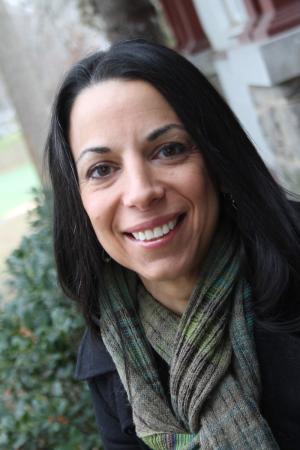
Earlier this semester, a number of faculty on our campus organized a “teach-in” to address growing concerns over the Trump administration’s recent executive orders and presidential leadership. Entitled, “Freedom from Fear: American Democracy in the Trump Era,” these sessions ran in 30-minute blocks from 9 am to 4 pm with faculty from a wide range of disciplines – sociology, political science, English, economics and criminal justice – covering topics such as Islamaphobia, right-wing populism, fascism, truth and rhetoric, sanctuary cities, and immigration. One of my Religious Studies colleagues, Dr. Jennifer T. Kaalund, and I gave a presentation titled, “Criminalizing the 'Other' - The Creation of Enemies and the Corrective of Catholic Social Teaching.” Our intent was to demonstrate how the recent executive order “Enhancing Public Safety in the Interior of the United States” (signed 1/25/17), with its stipulation to “make public a comprehensive list of criminal actions committed by aliens,” echoed similar attempts to create criminals out of people considered to be “other.” In our remarks, we referenced examples from Germany’s run-up to World War II and newspaper coverage of the “Central Park Five” case in 1989. In the first case, the newspaper Der Stürmer warned of a Jewish program for world domination and published “crimes” committed by Jews. One article “Who is the Enemy?” (1934 issue) blamed Jews for destroying the social order; the tag line on every issue’s opening page read “The Jews are our misfortune!” In the second case, a number of New York newspapers ran headlines such as “Wolfpack’s Prey” and “Wild Savages” to describe the five Black and Latino boys (between ages 14 – 16) accused of raping and beating a 28-year-old woman, Trisha Meili, as she jogged in Central Park. At the time, Donald Trump purchased full-page ads in four New York newspapers calling to reinstate the death penalty (even before the boys had their day in court) to “serve as examples so that others will think long and hard before committing a crime or an act of violence.” (New York Times 5/1/89) At the end of our presentation, Dr. Kaalund and I fielded some questions from students attending the day’s sessions. One student stood up, let’s call her Anna, and commented that she was insulted and disheartened, not by the presentation, but by the reaction of students behind her who were, in her view, disruptive and disrespectful during the teach-in, making it difficult for her to learn. She voiced her concern that students were wasting an opportunity to learn something new, perhaps because the content challenged their political views and assumptions. Things got heated very quickly. One of the students sitting behind Anna, let’s call him Will, wasn’t going to be “called out” without a response. Our time was up, but he refused to comply with repeated requests to continue the conversation in another venue. I had to escort him out of the auditorium with the promise that I would give him an opportunity to speak his mind. I had no idea what to expect. When the three of us – Anna, Will and I – sat together (I made sure I was strategically positioned between them), Will admitted that he had reacted quite strongly to how I had, in his view, equated Trump’s executive action with Nazi Germany and the Holocaust. Once that connection was made in his mind, everything else was less than credible. He simply shut down and proceeded to carry on the conversation with his friends seated with him. Anna asked him, “Why didn’t you raise your hand when you had an opportunity to share your question with the presenters?” Will thought it would be a waste of his time and he wasn’t as invested in the process of engagement at that particular moment as was Anna. He wasn’t prepared to share publically what he was more at ease sharing privately: that religion, in particular, Catholicism, had nothing to say in response to the executive orders; that everyone has the right to their own political views; and that “you might have a Ph.D. but I can believe you’re wrong.” He heard something he didn’t want to hear after which he foreclosed the possibility of learning altogether. A number of things were learned from this encounter. First, the faculty who organized the next teach-in built in more time for questions and discussion. It was clear to us that we needed to provide a space for processing the information shared at the teach-in; it was our responsibility to model with and for students what civil engagement can look like. Second, we developed a list of norms for civil engagement that were shared at the beginning of each new teach-in session and at the onset of the Q&A period so that everyone in the room would be mindful of the commitment to listen openly and speak respectfully. Finally, we organized fewer sessions the second time around, so as not to overwhelm students with too much information all at once. While I learned from this particular teaching moment, I must admit that the entire encounter saddens me as I reflect upon it. I did not mention the racial and gendered dynamics of power and privilege in the mix – myself and Dr. Kaalund as two women of color faculty, Anne as a student of color and Will as a white male student – but I believe these dynamics were operative and had much to do with a willingness (or lack thereof) to listen. In fact, this is what is encountered in the religious studies and theology classroom all the time, even as we try to steer so far away from it. In addition to the content of the encounter between religion and politics, as loaded as that is already, I believe this demonstrated the need for our constant vigilance and mindfulness – indeed our moral obligation – to keep religion and politics at the forefront of our public discourse. I agree with Roger Gottlieb when he said, “…it is morally unfair and psychologically impossible to expect religious citizens to check their values at the door when they enter the town meeting of democracy. Religious authority must not directly translate into political authority, but a religious perspective has as much – or as little – of a role to play in shaping our vision of our common life as any other.” (Liberating Faith [Rowman and Littlefield 2003], xix) The question for us, in the Trump era, is whether we have the courage to sustain that necessary engagement alongside our students, in and out of the classroom.
The Wabash Center Advisory Committee meets twice a year (in March and October) to consider grant proposals and other matters of business. Serving three year terms. Ground TransportationAbout a week prior to your travel you will receive an email from Trish Overpeck (overpecp@wabash.edu) with airport shuttle information. This email includes the cell phone number of your driver, where to meet, and fellow participants with arrival times. Please print off these instructions and carry them with you.
Two German Language Instructors discuss their collaborations via the GLAA program. Source.
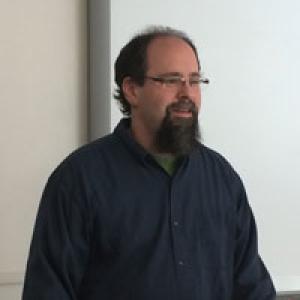
Every time I walk into a classroom or workshop for the first time, I hear the voices of elders in the long, Black-led struggle for justice pressing the questions: “How are you going to bring people into the movement? How are you going to plant the seeds and bring forth a revolution of values?” My thoughts are always about what it means to model the just peace of the society that is and has yet to be. The orientation I bring to the classroom or workshop space is one of religion and nonviolent social change focused in civic engagement and social action. The tasks and challenges we face today in the religious studies and peace studies classrooms are not unlike those faced over the past several decades. Rev. Dr. Martin Luther King, Jr. gave his “Breaking the Silence: Beyond Vietnam” sermon 50 years ago. In the sermon King called us to a “revolution of values.”[1] The revolution of values is a move away from a thing-oriented society toward a human-oriented society. It helps to create a society where everyone has their needs met and no one is oppressed. King was speaking out against the value the United States placed on the evils of racism, materialism, and militarism. According to elder Grace Lee Boggs, a revolution of values and building up the Beloved Community, are "about redefining our relationships with one another, to the Earth and to the world; about creating a new society in the places and spaces left vacant by the disintegration of the old; about hope, not despair; about saying yes to life and no to war; about finding the courage to love and care for the peoples of the world as we love and care for our own families.”[2] The recent wave of political and social violence against Black and Brown people, women, queer, non-gender conforming people, and religious minorities is not new. It is just more overt. The risks of talking about religion, politics, and the politics of religion in the classroom are high. We see friends and colleagues being labeled “dangerous.” Yet, our tasks as teachers are to critique and improve society. We do the emotional and complicated work of instilling in our students' religious literacy, a political consciousness, and a sense of calling. A large part of moving students to political consciousness and calling is the idea that human beings are all connected to one another, to the past, to the ancestors, and to the future. In other words, becoming politically conscious is to move toward the understanding that who I am is related to who you are. Simultaneously, the move toward calling presses the idea that what I do is related to social responsibility. Ultimately, what I believe about and how I live has consequences for others. In my courses, religious literacy becomes a tool for moving students into a new political consciousness. Students learn about the beliefs and practices of a variety of religious traditions and the political implications of those traditions. Along the way, students are given the opportunity to reflect on their own beliefs and practices. The pedagogical tools I have found useful in the endeavor to create a revolution of values and a new political consciousness are: Be authentic and present. I try to think of my teaching in terms of a pedagogy of relationship and community. I spend time during the first weeks of a semester allowing students to get to know one another. I treat classroom spaces as community spaces. As the professor, this means being vulnerable and transparent. Students know when a teacher is not being real. I cannot ask students to share their personal stories and experiences without being willing to do so as is appropriate. Make it real. I ask students to reflect on why religious literacy and political consciousness are helpful in their work, their relationships, their vocation, and in their civic engagement. If students can make the material relevant to themselves they are more likely to take it with seriousness. Making it real means exposing students to practitioners and the stories of real people. Teachers having their limits and being transparent about those limits allows students to see do likewise. Be clear about the end goal. If the point is to move students toward a revolution of values, then we must develop a pedagogy of transformation and hope. Too often religious and political discourse is about what we are against. In the words of elder Vincent Harding, “No matter what form education may take . . . I am convinced that one of its most important responsibilities is to nurture the realization that we can change our lives for the better, that another creative, more democratic way of life is possible, that the seeds of such a new way are already alive within us, needing to be nurtured.”[3] In these times the stakes are very high. How are we bringing people into the movement? How are we planning the seeds for a revolution of values? What are working toward? [1] King, Jr., Martin Luther, “Beyond Vietnam,” Available online at https://kinginstitute.stanford.edu/king-papers/documents/beyond-vietnam. Accessed March 8, 2016. [2] Boggs, Grace Lee. “The Beloved Community of Martin Luther King.” May 20, 2004. Yes. http://www.yesmagazine.org/issues/a-conspiracy-of-hope/the-beloved-community-of-martin-luther-king. Accessed August 14, 2014. [3] Harding, Vincent, and Daisaku Ikeda. America Will Be!: Conversations on Hope, Freedom, and Democracy. 2013, 174.
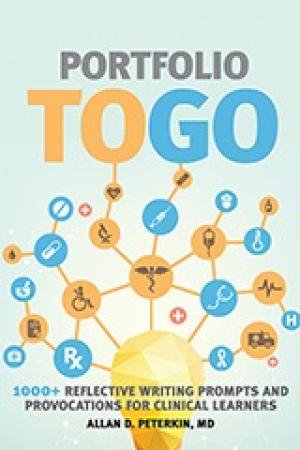
From Dewey (How We Think [Boston: D.C. Heath,1933]) to Schön (Reflective Practitioner [New York: Basic 1983]), and most recently Palmer and Zajonc (The Heart of Higher Education [New York: Jossey Bass 2010]) and Barbezat and Bush (Contemplative Practices in Higher Education [New York: Jossey Bass, 2013]), reflective practice has a long pedagogical history, especially in clinical training. Reflective practice calls for revisiting one’s past or present experiences in order to analyze, reconsider, and mine the learning in them for use in the future. Reflective practice is increasingly being employed in higher education along with the use of contemplative practices as a means by which to increase student use of critical thinking skills and embodiment of “competence, compassion, collaboration, and a tolerance for ambiguity in the face of uncertainty” (Peterkin, 3). Portfolio to Go offers a multitude of questions that encourage deep reflection on clinical and personal experiences by students in healthcare training programs. Although some prompts refer specifically to clinical and medical settings (for example, “Describe the hospital corridors at 3 a.m.” [80]), most deal with far broader settings (“Write a story about the last time you were yelled at” [42]) and could be used by students in a wide range of disciplines and in classroom or small group settings. Peterkin encourages their use primarily in reflective writing such as journals, critical incident reflections, or stand-alone assignments. He identifies writing as a tool that increases awareness of feelings and thoughts about one’s work, but also as a vehicle that deepens critical thinking, enriches ethical insights in complex situations, and encourages development of one’s professional identity. Inclusion of reflective writing in student portfolios provides professors or future employers a glimpse of personal and professional learning and identity formation over time. Although Peterkin intends the book for students, it would be useful as an educator’s guide to the inclusion of reflective assignments in clinical courses. In the opinion of this reviewer, the most valuable parts of this book are the chapters that coach and teach students how reflection and storytelling can maximize professional growth. The chapters include how to critically reflect in one’s writing, how to move from reflection to actionable practice, how to form and participate in a reflective writing group, and how to deal with internal criticism. In one chapter, Peterkin differentiates criticism (negative) from critique (positive) by noting that the former finds fault, notes what is missing, and attacks the writer, while the latter identifies strengths, looks for possibilities, and is honest but kind. In the chapter on moving from reflection to action, the author notes simple but profound elements of clinical visits that students often struggle to implement such as asking open-ended questions (“what would you like me to know about you?” or “what is one thing you haven’t asked me, yet?”), listening for patient concerns and fears, noticing metaphors in conversation and using them to expand understanding, and being aware of body language (standing, sitting, touching) and how it impacts relationship. Educators often find assessing reflective writing and discussions difficult because of the personal and vulnerable nature of reflection. Peterkin offers a very useful rubric (118-120) that provides ways by which to measure levels of participation and reflection. Portfolios to Go is a helpful volume for any educator interested in exploring the value of reflective practice and in including reflective assignments in a classroom or clinical training program.